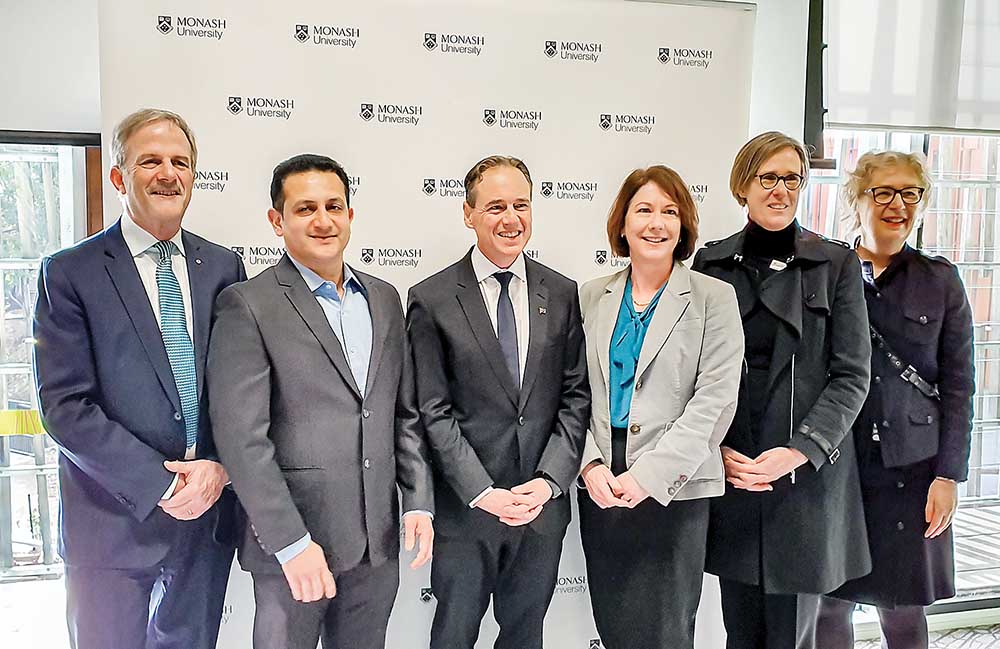
A NATIONAL centre for Healthy ageing will be established at Monash University’s Peninsula campus following a financial agreement between the federal government, Peninsula Health and the university.
An existing building at the campus in Frankston will be extended to “accommodate staff and cutting-edge simulation environments / transformation facilities for research and education for community-based care”.
Flinders MP and Health Minister, Greg Hunt, last week said the first “milestone payment” of the government’s $32 million contribution had been made.
“The national centre, the first of its kind in Australia, will deliver new research and treatment programs for older people and those with addiction and mental health issues, backed by new state of the art physical testing environments and data infrastructure,” Mr Hunt said.
“Bringing together the major health training, education and research activities at Monash’s Peninsula campus and Peninsula Health’s Frankston Hospital, the National Centre for Healthy Ageing will fast track and improve the health care of the nation’s most vulnerable people.”
Mr Hunt said the Mornington Peninsula region’s population is one of the fastest ageing in Australia “making it the ideal place to trial innovative health care solutions for older people, whether it be at home or in residential aged care”.
“Successful models would then be scaled up and rolled out across Australia.”
Mr Hunt said the use of “state-of-the-art living labs” and technology, would see “new models of care focus on delivering greater independence so people can stay at home for longer and avoid unnecessary hospitalisations”.
Mathew Langdon, Mr Hunt’s media contact, said ‘living labs’ was “a term used to describe real-life and life-like environments to help ensure research outcomes are easily implementable and lead to quick translation in the health system”.
Priority work of the new centre would include developing strategies and programs “to engage and assist those at risk of having an unwanted transfer to the emergency department, to develop their end of life care plans”, Mr Hunt said.
New models of care would be designed using assistive technology within purpose-built facilities to improve quality of life through continued successful living at home and reduced hospital admissions.
The centre will also partner with organisations in Frankston and on the peninsula to “identify addiction and severe mental illness solutions at the local level to improve the treatment for Australians with these illnesses”.
One of the Frankston campus-based projects would use electronic record data to develop ways of monitoring the prevalence of dementia.
The $600,000 grant to Monash University researchers will use the unique aspects of the peninsula region to conduct a pilot study for a program that will be rolled out across Victoria and nationally if successful,” Mr Hunt said.
The university had also been given $2 million for a study designed to prevent and reduce the risk of developing dementia in 45-65 year olds.
“Without a medical breakthrough, it is predicted that more than 1.1 million Australians will be living with dementia by 2056,” Mr Hunt said.